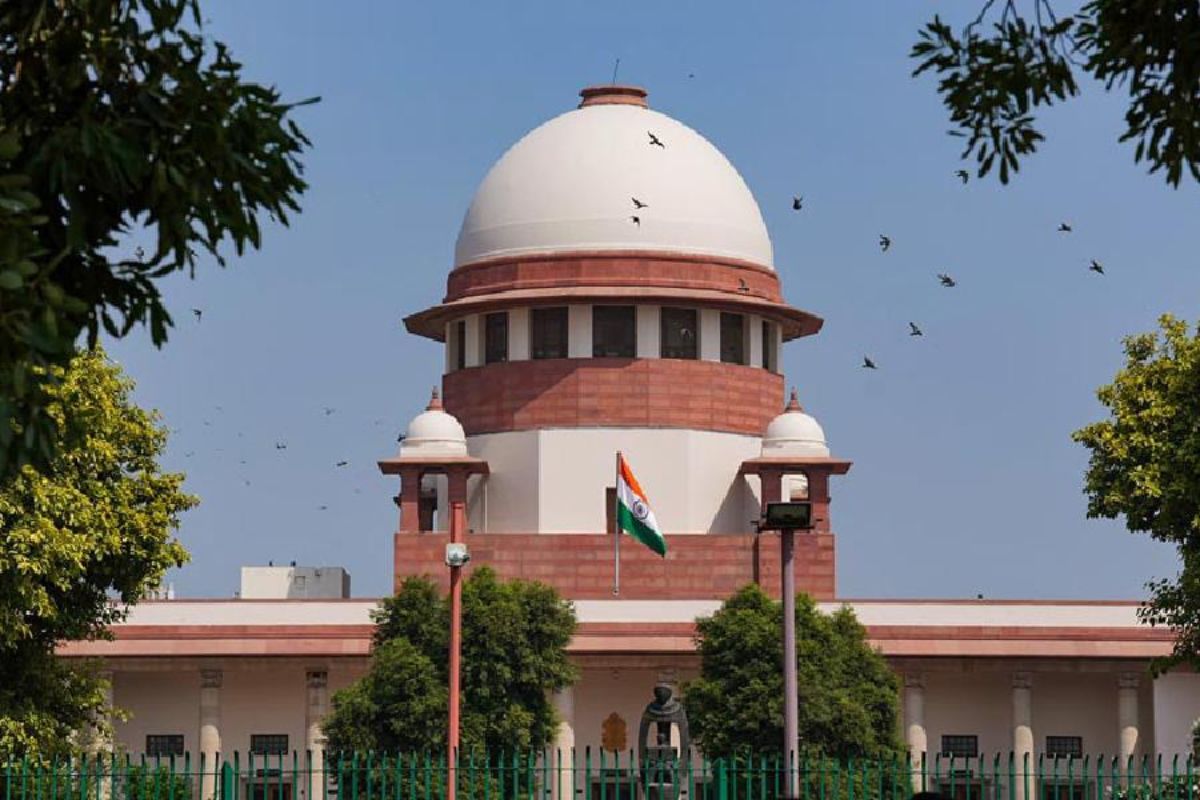Will knock the door of SC if rights of Himachal Pradesh not given by the Centre: CM
Chief Minister Sukhwinder Singh Sukhu has said that he will meet the Union Ministers to release the aid to Himachal under the Post Disaster Need Assessment (PDNA).
The Supreme Court on Wednesday was told that the Aligarh Muslim University was the continuation of the Muhammadan Anglo Oriental (MAO) College, and at no stage during its transition from college to university by a central statute in 1920 had it surrendered its identity as a Muslim minority institution.

SC quashes proceedings against Karnataka Dy CM Shivakumar in PMLA case
The Supreme Court on Wednesday was told that the Aligarh Muslim University was the continuation of the Muhammadan Anglo Oriental (MAO) College, and at no stage during its transition from college to university by a central statute in 1920 had it surrendered its identity as a Muslim minority institution.
Stating that it had, at no stage, shelved its status as a Muslim minority educational institution, the Aligarh Muslim University told a seven-judge constitution bench headed by the Chief Justice D.Y. Chandrachud that even the object and the reasons of the Aligarh Muslim University Act 1920, and its various provisions clearly states that it was an institution for the spread of education and culture amongst the Muslims.
Advertisement
Summing up the arguments from both the sides, senior advocate Rajeev Dhavan appearing for the AMU said that while we maintain that the transition of MAO College to AMU was a process in continuity, the other side asserts that transformation of MAO College into University resulted in surrendering of their Muslim minority institution.
Advertisement
Dhavan said that there are factors that determine the minority character of an educational institution and factors which are non-determinative of the such minority character. Dhavan referred to the historical antecedents of the AMU pointing to its minority character and those who founded it including their objectives of setting up the university and mobilising resources for it.
Dhavan said that merely AMU has been categorised as an institution of national importance, it does not take away its status as a Muslim minority institution. Dhavan said this in the course of his rejoinder arguments after the conclusion of arguments by the Centre and those opposed to the grant of the minority status to the AMU.
Referring to a book by Napoleon and Petel Bale, Dhavan told the bench also comprising Justice Sanjiv Khanna, Justice Surya Kant, Justice J.B. Pardiwala, Justice Dipankar Datta, Justice Manoj Misra and Justice Satish Chandra Sharma that we can go into history as an argument without an end and this is what has really happened (in the course of the hearing). One side is citing, what they believe is surrender (of minority status) and we are citing what was the mood at a particular point in time as explained by various provisions (of the AMU Act, 1920) and the background. What is relevant is the speech of the minister, proceedings of the select committee and the parliament debates on the issue.
Dhavan will continue his arguments on Thursday – February 1, 2024.
Earlier a number of lawyers appearing for the respondents opposing the plea for recognising AMU as a minority institution largely hammered on the point that once AMU was created by an act of central legislature during British Raj way back in 1920, and it cannot seek the status of minority institution.
The 7-judge constitution bench is hearing a batch of petitions on the issues relating to the minority status of AMU including two 1981 and 2019- top court reference for a relook at the correctness of the 1967 judgment by a five-judge constitution bench.
The top court in 1967 in the Azeez Bhasha case had held that AMU was a central university and, being a central university, it could not be conferred the minority status under Article 29 and Article 30.
In the earlier hearing, the constitution bench was told that the first Chancellor of AMU was then Her Highness Sultan Jahan Begum of Bhopal -from December 1920 to May 1930 and starting with the AMU court at the top, Executive Council, Academic Council, teaching faculty and right upto the classrooms, the presence of Muslims is to the extent of 82 t0 85 percent.
The court was told that AMU is an institution of national importance, and as a minority institution the AMU does what is required to be done under Article 30(1) of the constitution.
Advertisement